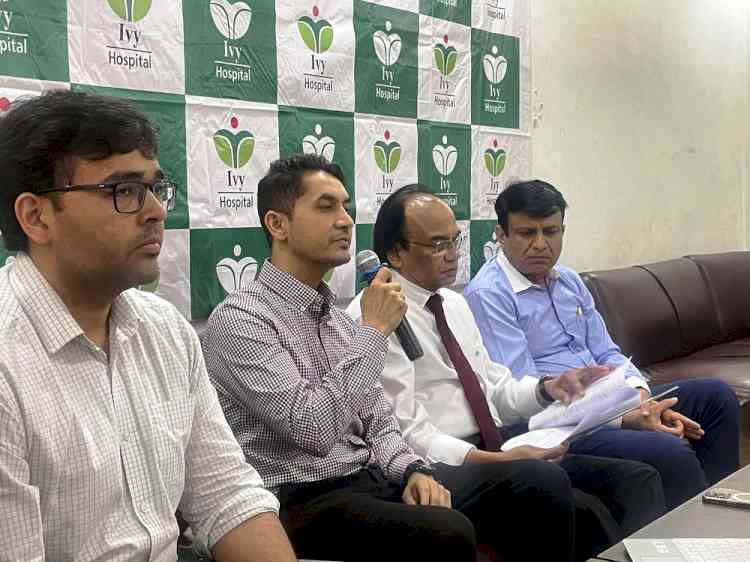Leaving India's relations in good condition for future government: Salman Khurshid (Interview)
New Delhi, May 16 (IANS) Outgoing External Affairs Minister Salman Khurshid says the UPA government has done "outstanding work" in the field of foreign policy and is leaving India's relations "in fairly good condition" that the future government...

New Delhi, May 16 (IANS) Outgoing External Affairs Minister Salman Khurshid says the UPA government has done "outstanding work" in the field of foreign policy and is leaving India's relations "in fairly good condition" that the future government can look forward to.
Speaking to IANS in perhaps his last interview before the UPA government demits office, Khurshid said the United Progressive Alliance government's contribution in building relations in its 10 years in power has been that despite working in a "difficult world and neighbourhood" India has been able to ensure that bilateral relations are stable.
He praised Prime Minister Manmohan Singh for steering India's foreign policy.
"In the past 10 years, among other good work that we have done, foreign policy is an area in which in a very difficult world and neighbourhood, we have done outstanding work and Prime Minister Manmohan Singh, I think, deserves credit for much of this -- as he steered it very closely," Khurshid told IANS.
He said that in the 15 months he has been external affairs minister, he had an opportunity to work with the prime minister, who took keen interest in foreign policy and in raising India's standing in the world order.
On India's relations with neighbours, Khurshid said there were "difficult conditions operating in countries in the neighbourhood", in Pakistan, Nepal, Sri Lanka and the Maldives.
"The conditions were difficult, both in all those countries and spilling over and reflecting in politics in our country -- and, therefore, to manage good relations with those countries without creating unnecessary tension in our country was not an easy job. But we managed to do it vis-a-vis Nepal, the Maldives, Sri Lanka and with Bangladesh.
"We kept our heads above water, it wasn't easy. And as we leave after 10 years, we leave our relations with all these countries in fairly good condition, I hope that successive governments can look forward to."
On not being able to deliver to Bangladesh the Teesta water sharing accord and the Land Boundary Agreements, Khurshid acknowledged that the UPA government had not been able to deliver the two outstanding agreements though the Sheikh Hasina government provided a lot of cooperation on tackling militant groups based in that country.
"We couldn't walk all over (West Bengal Chief Minister) Mamata Banerjee," Khurshid said, referring to Banerjee's refusal to endorse the Teesta water sharing accord in 2011. Banerjee's Trinamool Congress was then a constituent of the UPA and the government had to back out from going ahead on Teesta.
"As far as Sri Lanka is concerned, the issue about accountability etc has not yet settled. There are a host of issues, but these are not issues that are going to be wished away... They are important for us, they are important for them. But the point is they should not damage our relations, and that we've been able to do."
On ties with Colombo, Khurshid said the prime minister not attending the Commonwealth Heads of Government Meeting Summit last November has not affected ties.
"Our relations remain intact. We are actually discussing nuclear areas as well. Our discussions with them, the cooperation they have extended in every sphere... our tourism is exceeding all previous bounds, investment both ways is increasing -? where the alternative was a complete breakdown of relations. But there are issues on both sides, and we need to resolve them... they can't be wished away. There are no magic solutions."
Khurshid denied any perception of downslide in ties with the US. "There is no downslide in ties. It is only because they had a very difficult economic situation, and we have had a difficult economic situation -- and in such an economic situation we can't have an extreme position either way, we need to accommodate them, they need to accommodate us. We've had very good relations, outstanding growth in trade, cooperation in every field."
"So in a difficult world we kept our heads above water, and kept our relations intact, and relations have the potential for growth. We haven't allowed any damage to any of our relations -- Russia, US, UK, France, the neighbourhood, everybody."
He expressed hope that there would be continuity in bilateral relations when the next government comes to power.
He said the UPA government's contribution was that "now 120 nations are saying that we should be on UNSC, which is a big contribution. We are also members of the Arctic Council."
"The fact that we have a huge interface with China, Russia, Japan and with Singapore, these are very important, and a massive development programme for Africa. These are features that stand out in our foreign policy."
(Ranjana Narayan can be contacted at [email protected])

 cityairnews
cityairnews 















